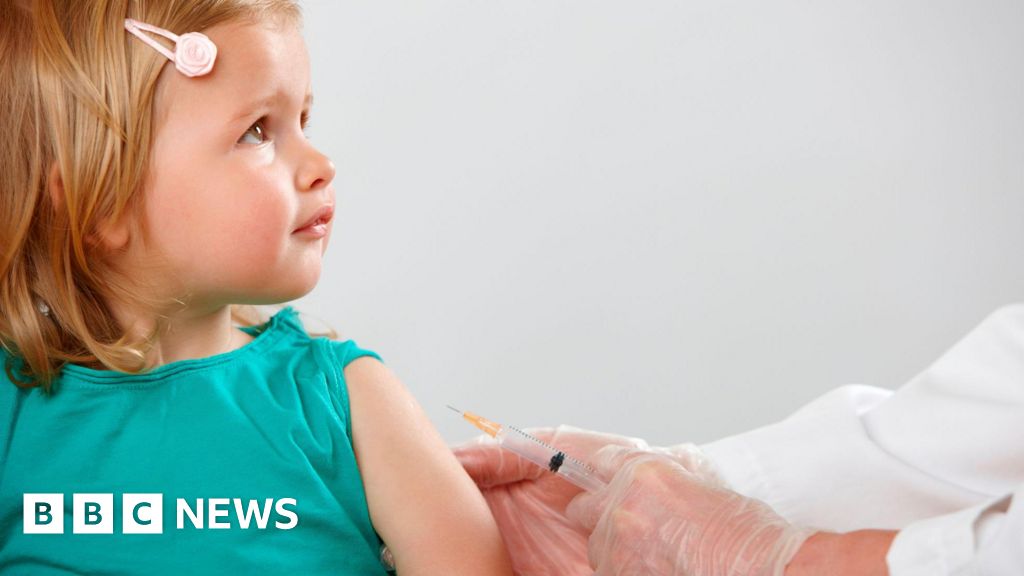Philippa Roxby: Bridging Gaps in Childhood Vaccination
In a lively neighborhood in South London, a mother hurriedly scrambles to find the pediatrician’s office, her child bundled in a warm coat yet visibly apprehensive. As the mother navigates congested streets, she recalls the reassuring pamphlets received weeks earlier, detailing vaccination schedules. Unfortunately, the pamphlets only led to frustration, revealing the gaps in access to essential healthcare services. This scenario is echoed across the UK, where a shocking decline in childhood vaccination rates has emerged, raising alarms among health experts.
The Decline in Vaccination Rates
Over the past decade, vaccination uptake among children in the UK has plummeted, failing to meet the World Health Organization’s 95% target necessary for herd immunity. Recent reports indicate that the repercussions are dire—waves of measles and whooping cough outbreaks have surged, rekindling fears associated with previously controlled diseases. In 2023 alone, nearly 16 million children worldwide went unvaccinated, with the most alarming figures arising from Asia and sub-Saharan Africa, underscoring a grim global trend.
Child health experts assert that logistical issues often overshadow vaccine hesitancy. “Parents are not resistant to vaccinations; they merely face systemic barriers,” argues Dr. Maira Ellis, a pediatrician at the Royal College of Pediatrics and Child Health (RCPCH). “Our research indicates that many families need better information, easier access, and above all, support.” These insights echo across multiple studies, revealing common challenges faced by parents.
Systemic Barriers to Vaccination
- Difficulties booking appointments due to high call volumes at GPs
- Challenges in arranging time off work for vaccination visits
- Lack of accessible transportation to healthcare facilities
- Inconsistent healthcare providers leading to mistrust
- Insufficient personalized communication regarding vaccination needs
Dr. Helen Stewart, via her recent review on vaccination barriers, highlights especially concerning truths: “One key finding is the confusion around a child’s vaccination status. When I ask parents if their child is up to date, many respond with ‘I think so,’ indicating a profound lack of accessible information.” Meanwhile, marginalized communities, particularly those from lower-income backgrounds and ethnic minorities, experience heightened barriers, exacerbated by the pandemic’s fallout.
Innovative Solutions: The Digital Path Forward
In response to these alarming statistics, experts are calling for transformative changes in the vaccination process. The RCPCH has recommended developing a ‘digital red book’—an accessible online platform allowing parents to track vaccination schedules, making it easier to monitor their child’s healthcare milestones. “A user-friendly app can demystify vaccination needs and serve as a constant reminder to parents,” notes Dr. Fiona Hargreaves, a health tech innovator. Such a digital solution aims to simplify the often convoluted process of accessing health services.
Furthermore, the UK’s health authorities are proactively exploring flexible appointment scheduling and mobile vaccination units to enhance accessibility, as emphasized by Dr. Julie Yates from the UK Health Security Agency. “By expanding the venues for vaccination and allowing online appointments, we can dismantle some of the barriers parents face,” she affirms. These changes are critical to reigniting the public’s confidence in healthcare, particularly among disenfranchised populations.
Building Public Trust and Confidence
Despite challenges, public confidence in vaccinations remains robust, with approximately 90% of parents still believing in their efficacy, according to surveys by the UK Health Security Agency. However, the need for outreach remains crucial. “It’s essential we create environments where parents feel secure in discussing their health concerns with professionals,” states Alison Morton, CEO of the Institute for Health Visitors. “Building relationships fosters trust, and trust converts into higher vaccination rates.”
Dr. Stewart highlights the importance of trained health visitors—as a bridge between families and healthcare systems—to fill the gaps left by overburdened pediatricians. “Health visitors can play a crucial role in alleviating anxieties surrounding vaccinations, ensuring families receive consistent and clear information,” she concludes.
The urgency to act is palpable. According to a 2022 report from the RCPCH, falling vaccination rates correlate directly with rising cases of vaccine-preventable diseases, leading to tragic outcomes, including the deaths of 11 infants due to whooping cough. This stark reality underscores the necessity for immediate interventions to ensure a safer future for the UK’s children.
As the sun begins to set on another busy day in the neighborhood, the mother from South London reflects on her journey through the healthcare landscape. Armed with new insights, community support, and improved access to information, she is determined to secure the health and safety of her child. Navigating systemic challenges may be daunting, but a collaborative approach, centered on breadth of access and public trust, will forge a path forward, ensuring that no parent ever feels alone in the crucial task of protecting their child’s health.
Source: www.bbc.com


